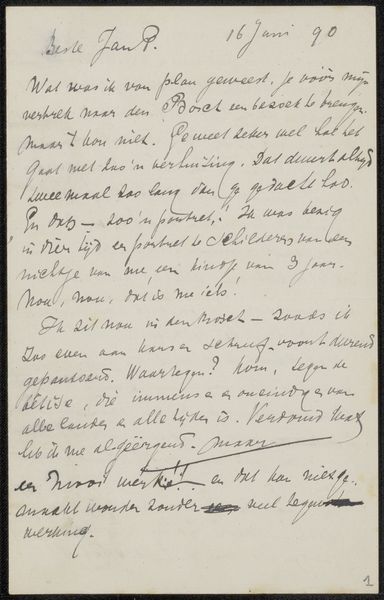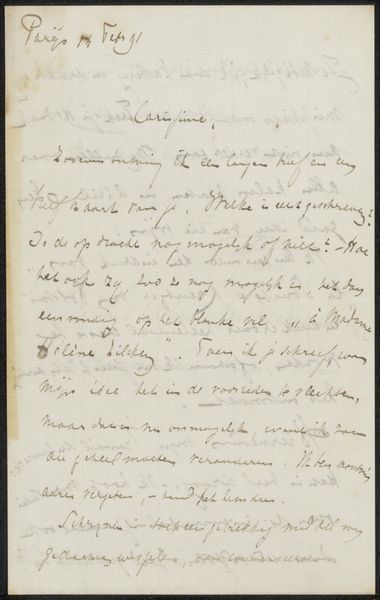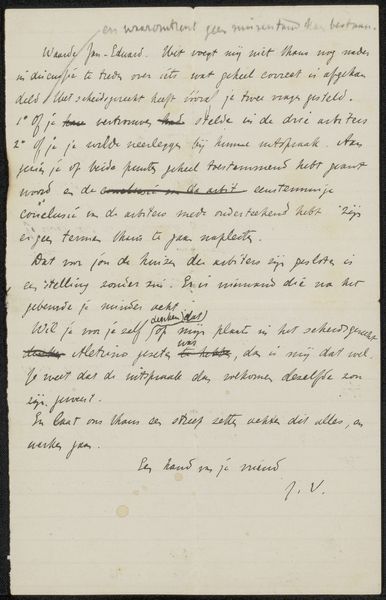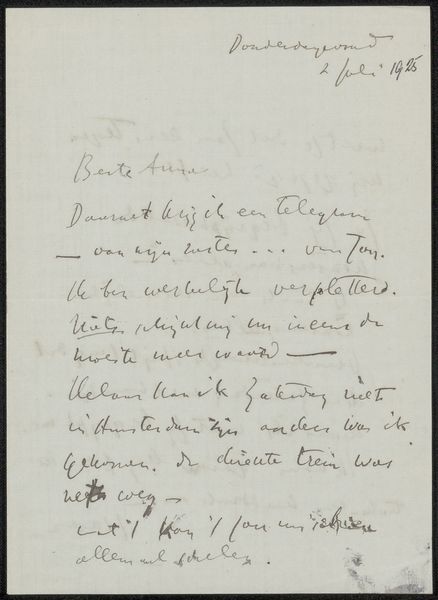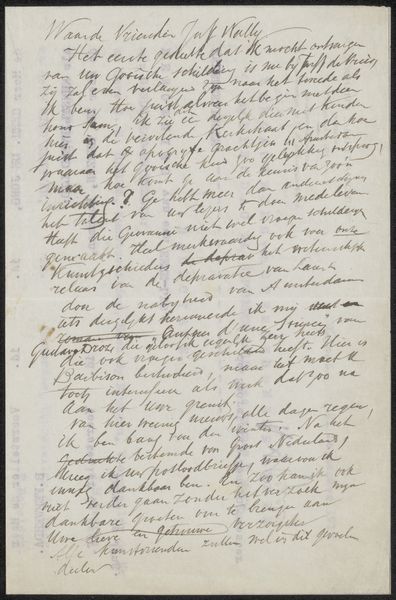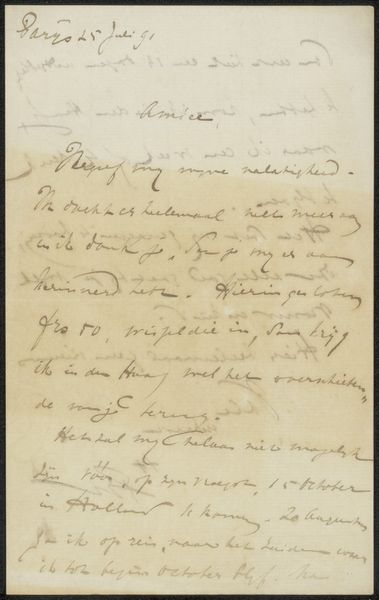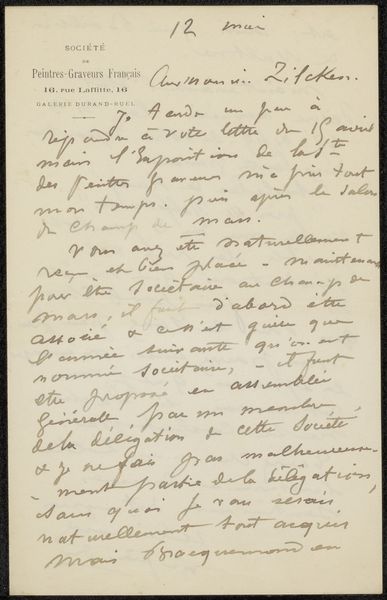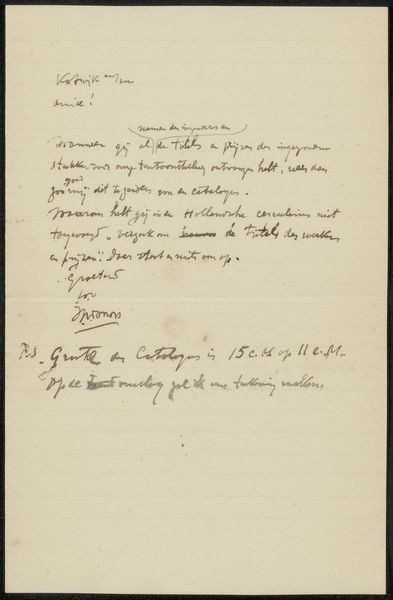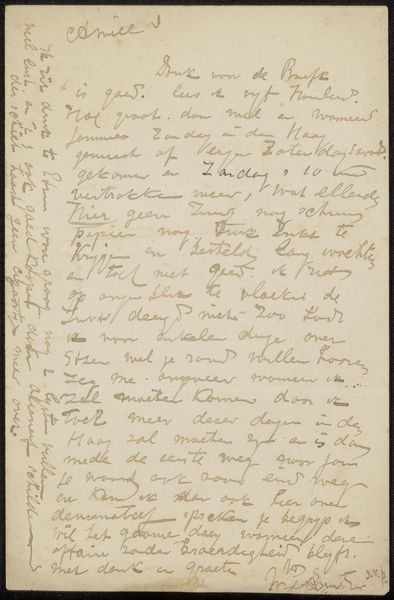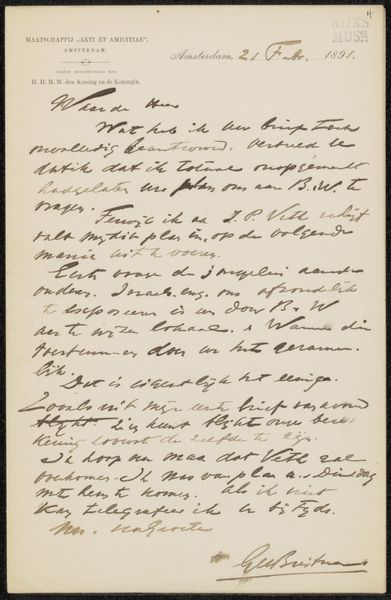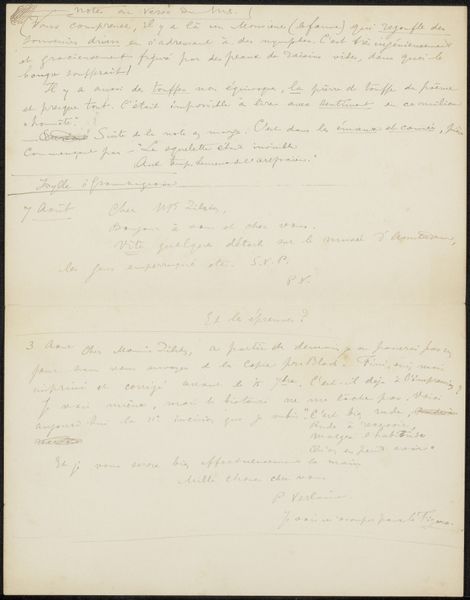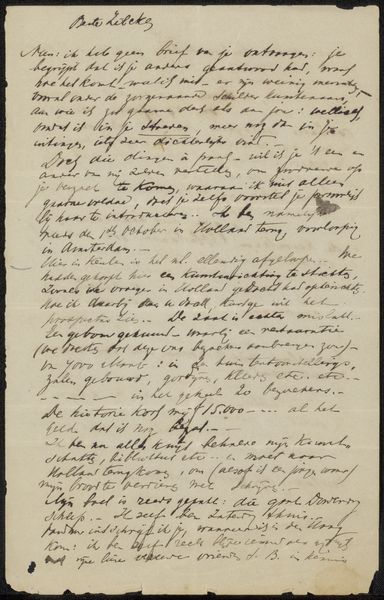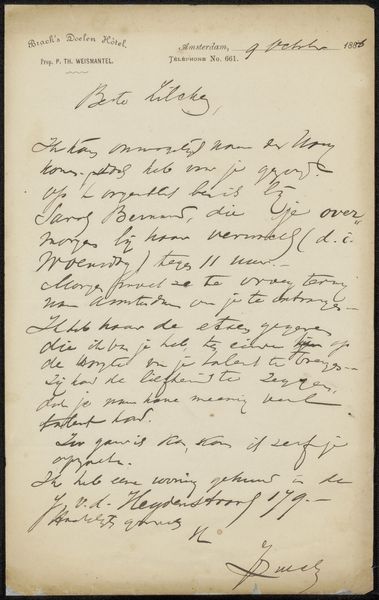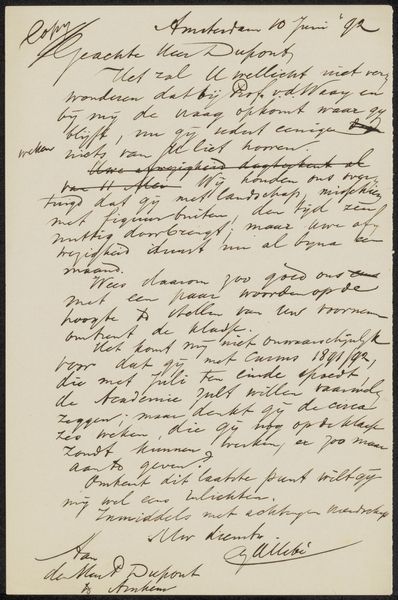
drawing, paper, ink, pen
#
drawing
#
aged paper
#
toned paper
#
ink paper printed
#
sketch book
#
hand drawn type
#
paper
#
personal sketchbook
#
ink
#
ink drawing experimentation
#
ink colored
#
sketchbook drawing
#
pen
#
sketchbook art
Copyright: Rijks Museum: Open Domain
Editor: Here we have "Brief aan Philip Zilcken," thought to be from 1890, housed in the Rijksmuseum. It’s an ink and pen drawing on paper. My first thought is how fragile this feels. The aged paper and delicate script create such a sense of intimacy. What historical narratives do you see within this piece? Curator: Indeed. I find myself contemplating the power dynamics embedded in such a seemingly simple letter. Consider who had the privilege of literacy and correspondence during that era. Letters functioned as critical tools, but for a limited segment of the population, impacting trade and diplomacy. How might Zilcken's social position have shaped the letter's content and purpose? Editor: That's a great point! I hadn’t really considered how class might affect it. How do museums factor into all of this? Is the letter's presence here influencing how we perceive it today? Curator: Absolutely. By placing a private correspondence in the public sphere, a museum inherently elevates its significance. The letter transcends its original, personal intent, transforming into a cultural artifact that reflects the tastes, values, and agendas of both the original sender and the institution now safeguarding it. Are we meant to appreciate its artistic value or decipher the hidden narratives that are part of history? Editor: It's interesting to consider a document both a personal exchange and part of this large historical, public narrative that you’re calling out. It prompts so many questions! Curator: Precisely. And I believe that’s the true value in studying works like these - in this context. Their existence becomes a trigger for contemplating the socio-political systems that influenced its creation, as well as the frameworks through which we interpret them today.
Comments
No comments
Be the first to comment and join the conversation on the ultimate creative platform.
